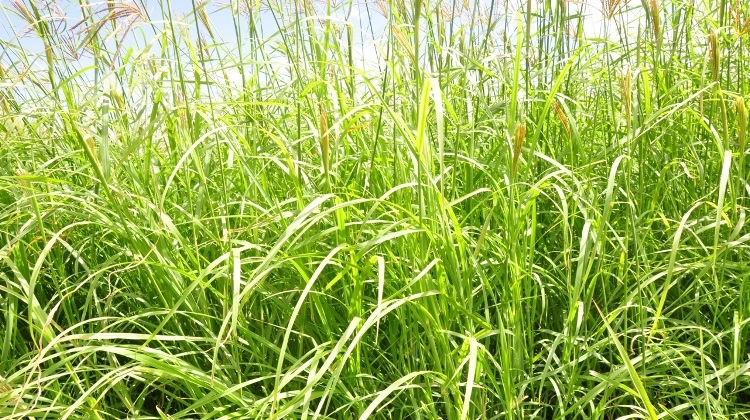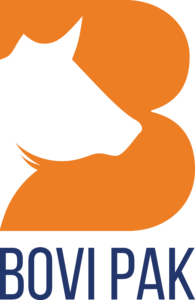Contact Us
+92 3000 116111Rhodes Grass Hay First Cut vs. Second Cut: A Complete Buyer’s Guide
High-quality fodder for dairy, beef, goats, sheep, camels & horses – ensuring better milk yield, healthy growth, and profitable farming.
- Finest Quality Guaranteed
- Global Shipping Coverage
- Certified & Tested Fodder
When it comes to feeding cattle, the decision between first-cut and second-cut Rhodes grass hay can have a direct effect on milk production, animal health, and your overall feed investment. For the reason to guarantee constant quality, farmers and traders in the Middle East are constantly searching for the best Rhodes grass hay supplier in the United Arab Emirates, Saudi Arabia, and Oman.
BoviPak specializes in delivering top-notch Rhodes hay for export via Jebel Ali Port and other shipping hubs. Whether you’re seeking high-fiber hay for camels or nutrient-rich hay for dairy cows, this guide will explain the differences between first and second cut Rhodes grass hay, as well as the commercial benefits.

What is Rhodes Grass Hay?

A common tropical forage grass grown for animal feed is rhodes grass (Chloris gayana). It is well-known for its well-rounded nutrition, high digestion, and climate-adaptability throughout the Middle East, making it an excellent option for:
- Dairy cows – supports higher milk yields.
- Camels & horses – provides long fiber for endurance and digestive health.
- Goats & sheep – soft and palatable, easy to chew.
It is frequently chosen over alfalfa hay due to its accessibility and price, particularly in the United Arab Emirates and Saudi Arabia. Depending on the cut, quality, and season, farmers frequently inquire about the cost of Rhodes hay per ton.
Rhodes Grass Hay – First Cut vs Second Cut
First Cut Rhodes Grass Hay
Characteristics
- Coarser, thicker stems with golden-green color.
- Higher in fiber, moderate in protein.
- Long shelf life, suitable for storage and export.
Nutritional Profile
- Crude Protein: 7–10%
- Fiber (NDF): High – excellent for rumen function.
- Energy: Moderate.
- Minerals: Calcium, magnesium, potassium.
Best Uses
- Camels: Provides stamina in desert climates.
- Cattle & Horses: Keeps digestive health balanced.
- Export Traders: Popular for bulk shipments due to durability.
Farmers in Saudi Arabia and UAE often buy first cut Rhodes hay for camels, as high-fiber roughage supports long-distance endurance.
Second Cut Rhodes Grass Hay
Characteristics
- Leafy, tender, greener, and softer in texture.
- Higher nutritional density, more palatable.
Nutritional Profile
- Crude Protein: 9–12%
- Fiber: Lower, easier to digest.
- Energy: Higher – boosts animal productivity.
- Vitamins: Rich in Vitamin A and E.
Best Uses
- Dairy Cows: Improves milk production and fat content.
- Goats & Sheep: Ideal for smaller livestock.
- Young Animals: Gentle on digestion and support rapid growth.
This cut is in high demand among dairy farmers in Qatar, Oman, and UAE who prefer premium Rhodes grass hay for cows.
Rhodes Grass Hay First Cut vs Second Cut – Side-by-Side
| Feature | First Cut Rhodes Hay | Second Cut Rhodes Hay |
|---|---|---|
| Texture | Coarse, stemmy | Soft, leafy, green |
| Protein Content | 7–10% | 9–12% |
| Fiber Level | Higher | Moderate |
| Energy Value | Moderate | Higher |
| Shelf Life | Longer (better for export) | Shorter, fresher quality |
| Best For | Camels, cattle, horses | Dairy cows, goats, young stock |
| Export Preference | Saudi Arabia, UAE (camels) | UAE, Oman, Qatar (dairy farms) |
| Price | More economical | Premium pricing |
Storage & Export Considerations
First Cut Rhodes Hay: Stores longer, less spoilage risk, preferred for container shipping and bulk exports.
Second Cut Rhodes Hay: Requires quicker usage but is sold at higher margins in dairy markets.
At BoviPak, we handle Rhodes hay shipments via Jebel Ali Port (UAE), ensuring clean, dust-free, and well-packed bales suitable for long-distance transport.
Commercial Applications
- Dairy Farms: Second cut is preferred for milk yield optimization.
- Camel & Horse Owners: First cut provides roughage and endurance energy.
- Feed Traders & Exporters: Both cuts are profitable, depending on the target livestock market.
- Mixed Farms: Many combine both cuts to balance protein and fiber intake.
With Rhodes hay demand rising across the Middle East, many buyers secure bulk orders at fixed Rhodes hay prices per ton to avoid seasonal fluctuations.
Why Choose BoviPak as Your Rhodes Hay Supplier?
- Premium Quality: Fresh, sun-cured, dust-free bales.
- Packaging Options: Small bales, big bales, and compressed bales.
- Export Strength: Direct shipments through Jebel Ali Port.
- Wide Coverage: Supplying to UAE, Saudi Arabia, Oman, Qatar, Kuwait.
- Competitive Pricing: Best Rhodes hay price per ton for bulk buyers.
Whether you need first cut hay for camels or second cut hay for dairy farms, BoviPak guarantees on-time delivery and consistent quality.
FAQs on Rhodes Grass Hay
What is the average Rhodes hay price per ton in UAE?
Prices vary based on cut, season, and bale type, but first cut is more affordable, while second cut is priced higher due to its richer nutrition.
Is Rhodes hay better than Alfalfa for camels?
Yes, Rhodes hay is preferred for camels and horses because of its moderate protein and higher fiber, while alfalfa is better for dairy cows.
Do buyers in Saudi Arabia prefer first or second cut Rhodes hay?
The first cut is needed for camels, and the second cut is needed for dairy farms.
Can I order compressed bales for export?
Yes, at BoviPak we supply compressed Rhodes hay bales for container shipping, reducing freight costs.
How do I know which cut is best for my farm?
If you run a dairy farm, choose a second cut. For camels, beef cattle, or horses, the first cut is ideal.
🌾 Final Word
First cut: High fiber, durable, cost-effective, perfect for camels, cattle, and horses.
Second cut: Higher protein, softer, premium quality for dairy cows and goats.
At BoviPak, we are a leading Rhodes Grass Hay Supplier in UAE and Saudi Arabia, offering competitive Rhodes hay prices per ton with reliable shipping solutions.
Contact us today to book your Rhodes hay order (first or second cut) for export to UAE, Saudi Arabia, Qatar, and Oman.
BoviPak – Rhodes Grass Hay Supplier
Address: Dubai Plaza Office #19, Main Multan Road, Muzaffar Garh, Punjab, Pakistan
Phone: +92 3000 116111
Email: info@bovipak.com
Lorem ipsum dolor sit amet consect etur adi pisicing elit sed.
Dubai Plaza Office #19 Main Multan road Muzaffar Garh, Punjab Pakistan
Newletter
Sign up now to get daily latest news & updates from us

